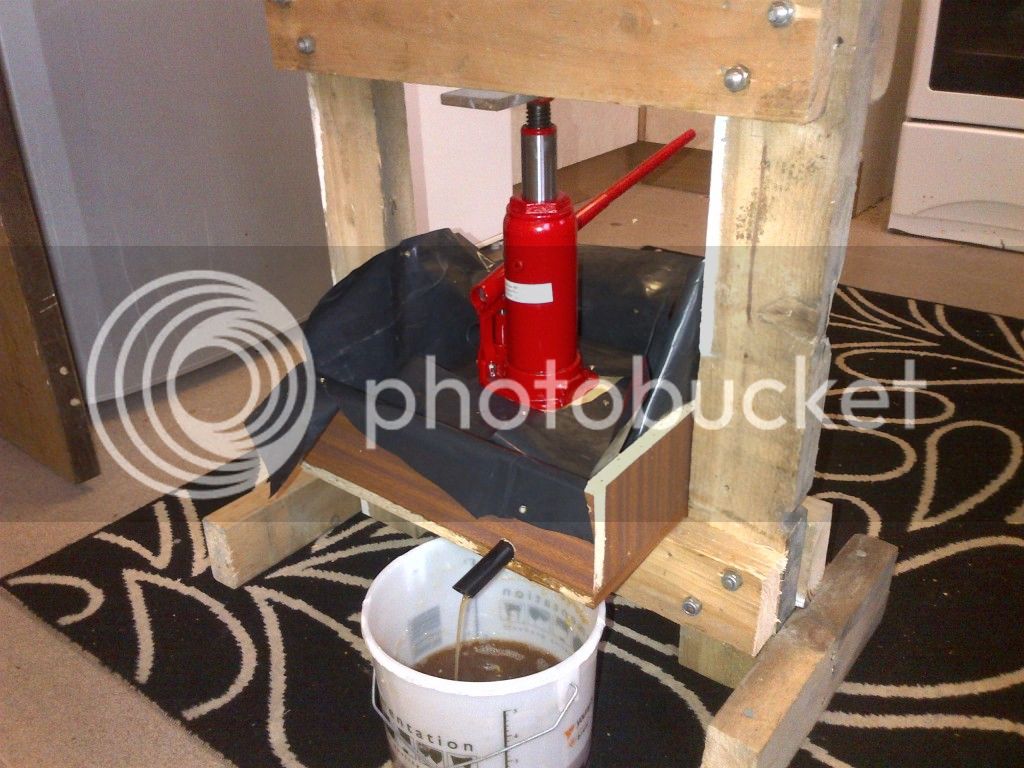My press is made from a fire hydrant.It works on the same principle as the old Boots fruit press, but with a much higher capacity. I assumed the drum was stainless steel but was wrong! I tried to get it galvanised, or stove enamelled or powder coated, all food safe, but couldn't get anyone to do it. I considered Hammerite, which is not food safe. In the end I used plastic spray paint primer and several top coats on the drum and pressure plate.
English grown grapes tend to be high in acid and if you are processing a lot in small batches, like me, contact time can be quite prolonged.
Apart from the high cost, the only new oak I could get was Tasmanian, an unknown factor. English oak is too bitter. French and American is perfect. You can get old oak half barrels from garden centres for £35. The press frame can be made of any wood.
When I moved in to my house, I inherited a mangle and top loading washing machine. If I still had them, I could have used the former to crush the grapes and the latter as a centrifugal juice extractor.
I quite agree that hand wringing 20kg is not an experience I wanted to repeat either. In the end, my secondhand press cost £70 and ended up with 60 bottles of wine that year. I also used it to extract another 20% of apple juice out of the ejected pulp from the electric juicer (not suitable for grapes), so it was worth the expense. I could have hired one for £35, plus about £8 for petrol to collect and return it. The cost of building one would have been over £200 using only partly oak and not including the hydraulic jack.






